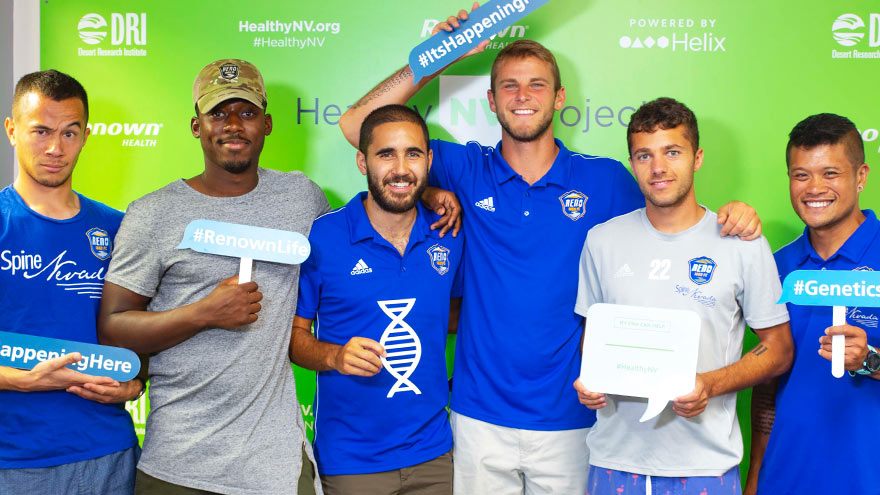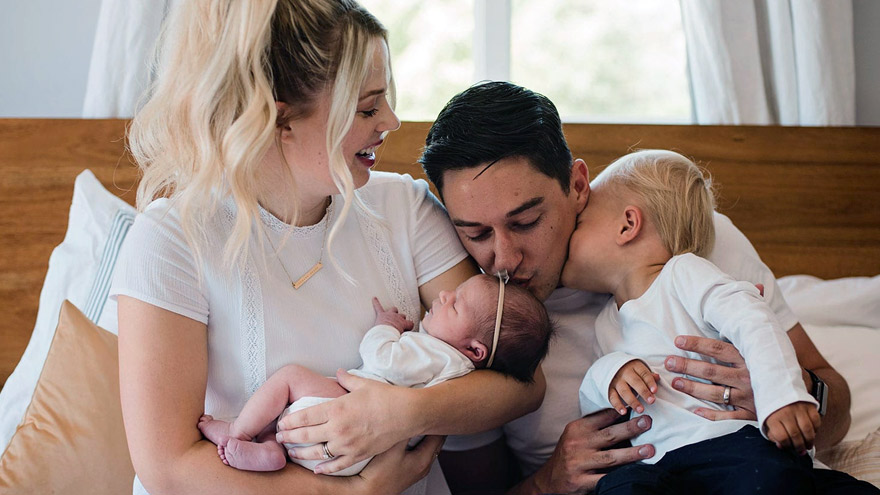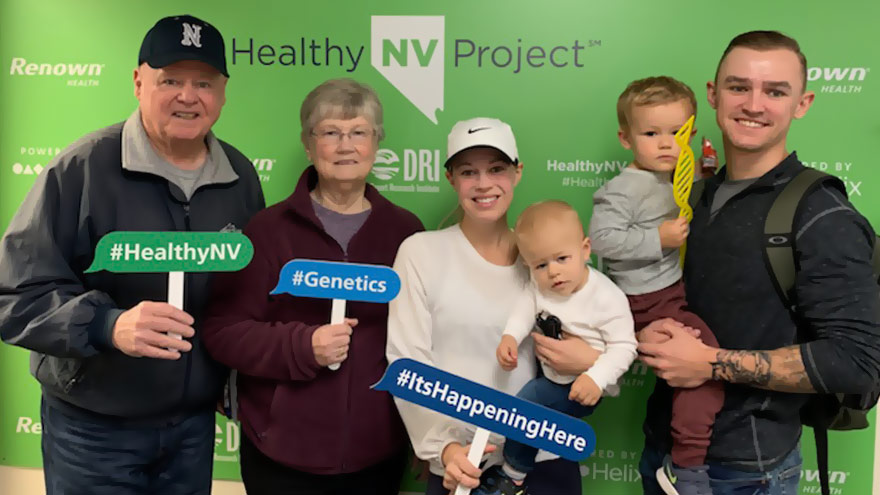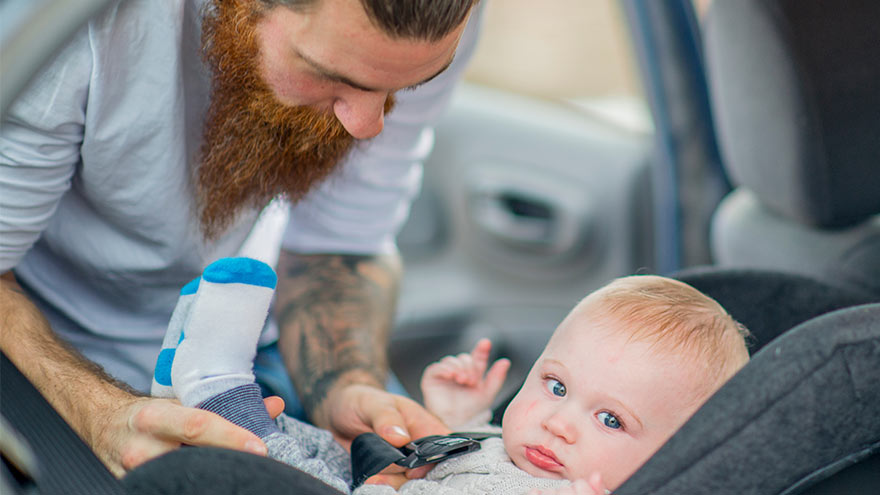Search
-
-
12Dec
Space is limited for this event, and registration is required. This workshop is focused on understanding and completing a Nevada Durable Power of Attorney of Healthcare, also known as an Advance Directive. What to expect: A brief presentation about the document, its contents and purpose. Time for questions. Staff will be on hand to assist with document completion. A notary will be present for notarization. Participants may have their document uploaded into their Renown electronic medical record and/or submitted to the Nevada Living Will Lockbox on their behalf. Please come prepared with names, addresses, and phone numbers of those you want to appoint in the document and a photo ID if notarization is desired. All required paperwork will be provided by our staff. If you have questions about this workshop, please call Jessica Elmore, LMSW at 775-982-5098. There is no charge to attend this workshop.
Read More About Advance Directive Workshop
-
-
-
15Aug
Space is limited for this event, and registration is required. This workshop is focused on understanding and completing a Nevada Durable Power of Attorney of Healthcare, also known as an Advance Directive. What to expect: A brief presentation about the document, its contents and purpose. Time for questions. Staff will be on hand to assist with document completion. A notary will be present for notarization. Participants may have their document uploaded into their Renown electronic medical record and/or submitted to the Nevada Living Will Lockbox on their behalf. Please come prepared with names, addresses, and phone numbers of those you want to appoint in the document and a photo ID if notarization is desired. All required paperwork will be provided by our staff. If you have questions about this workshop, please call Jessica Elmore, LMSW at 775-982-5098. There is no charge to attend this workshop.
Read More About Advance Directive Workshop
-
-
-
20Jun
Space is limited for this event, and registration is required. This workshop is focused on understanding and completing a Nevada Durable Power of Attorney of Healthcare, also known as an Advance Directive. What to expect: A brief presentation about the document, its contents and purpose. Time for questions. Staff will be on hand to assist with document completion. A notary will be present for notarization. Participants may have their document uploaded into their Renown electronic medical record and/or submitted to the Nevada Living Will Lockbox on their behalf. Please come prepared with names, addresses, and phone numbers of those you want to appoint in the document and a photo ID if notarization is desired. All required paperwork will be provided by our staff. If you have questions about this workshop, please call Jessica Elmore, LMSW at 775-982-5098. There is no charge to attend this workshop.
Read More About Advance Directive Workshop
-
-
-
10Oct
Space is limited for this event, and registration is required. This workshop is focused on understanding and completing a Nevada Durable Power of Attorney of Healthcare, also known as an Advance Directive. What to expect: A brief presentation about the document, its contents and purpose. Time for questions. Staff will be on hand to assist with document completion. A notary will be present for notarization. Participants may have their document uploaded into their Renown electronic medical record and/or submitted to the Nevada Living Will Lockbox on their behalf. Please come prepared with names, addresses, and phone numbers of those you want to appoint in the document and a photo ID if notarization is desired. All required paperwork will be provided by our staff. If you have questions about this workshop, please call Jessica Elmore, LMSW at 775-982-5098. There is no charge to attend this workshop.
Read More About Advance Directive Workshop
-
-
CEO Blog: Improving Health Through Genetics and Big Data
Renown Health President and CEO Tony Slonim, MD, DrPH, discusses efforts nationwide to develop a more effective and efficient way to deliver care. explains the benefits of Renown Health’s population health study with the Desert Research Institute and 23andMe.
Read More About CEO Blog: Improving Health Through Genetics and Big Data
-
Healthy Nevada Project: What We've Learned
As the Healthy Nevada Project expands to 50,000 study participants, researchers are sharing the health insights gleaned from the pilot phase of the project. Air pollution is a major health factor affecting northern Nevadans, according to data gathered by researchers in the pilot phase of the Healthy Nevada Project, one of the largest population health studies in the country. Today, the project — which began 18 months ago as a partnership between Renown Health and the Desert Research Institute — is expanding to add 40,000 additional participants bringing total enrollment to 50,000 Nevadans. “We are thrilled to share the first insights from our 10,000-person pilot phase and discuss how we will begin using those results to improve patient care,” says Anthony Slonim, M.D., Dr.PH., FACHE, president and CEO of Renown Health and president of Renown Institute for Health Innovation, a collaboration between Renown and DRI. Healthy Nevada Project Pilot Phase — and What Happens Next The pilot phase of the Healthy Nevada Project proved Nevadans are excited to know more about themselves and want to contribute to research that could improve health outcomes for the entire state. The pilot phase enrolled 10,000 participants in less than 48 hours and DNA sample collection from each participant was completed in just 69 working days. Based on pilot phase data, researchers have seen increased use of regional healthcare services correlated with fluctuations in air quality and so-called “bad air events” such as wildfires and atmospheric inversions. In phase two, Renown IHI will evaluate possible links between genetics and increased susceptibility to respiratory ailments. Study researchers also announced care providers and scientists will begin working on a number of clinical programs and scientific studies focused specifically on Washoe County’s high age-adjusted death rates for heart disease, cancer and chronic lower respiratory disease. Collectively, these conditions among local residents stand at 33 percent above the national rate. In the coming months, Renown IHI will begin providing advanced calcium score screenings to pilot phase participants at higher risk for cardiovascular disease. This will allow researchers to examine the link between genetics and calcium buildup in the heart. Researchers are also evaluating future studies focused on age-related macular degeneration and breast cancer risks in northern Nevada. Pilot Phase Insights Fifty percent of pilot study participants responded to a comprehensive, socioeconomic survey, which revealed: High rates of lower respiratory disease in northern Nevada and co-morbidities such as diabetes and hypertension suggest air pollution in northern Nevada is a confounding and significant factor in health. Study participants had parents who died from cancer and heart disease at a higher rate than the age-adjusted national average. Study participants exercised less than recommended by the American Heart Association and expressed interest in receiving help with behavior modification using diet/nutrition and weight loss tools. In phase two, if study participants choose to complete a follow-up survey, they will have the chance to pick an additional health and wellness app specific to their individual genetic results. Learn More To see if you are eligible to participate in the study, to sign up for study updates and for full details on the Healthy Nevada Project, please visit HealthyNV.org.
-
Think Outside the Box: Healthy, Creative School Lunch Hacks
Gone are the days of soggy PB&Js on white bread: Today’s school lunch is your chance to create a healthy, colorful midday meal! Here are a few simple tips, a week of lunch ideas and a shopping list to help you pack a lunch that won’t be offered up for trade during tomorrow’s lunch hour. While school lunches are getting healthier, packing and taking a lunch to school will ensure that your child is getting a healthy, well-balanced meal. Making lunches should be a team effort. Your kids can help pack their lunches by spreading on condiments or putting food in containers. To save time in the morning, pack lunches the night before. The following are a few suggested items you can use to ensure your child is eating a tasty but nutritious lunch: Main dishes Lunch meat and lowfat cheese roll ups English muffin pizzas Sandwich wraps – meat, cheese and veggies in a whole grain tortilla Pita pockets stuffed with grilled chicken and vegetables Soup Chef salad with spinach, veggies, cheese, lunch meat and dressing Tuna or chicken salad on a mini bagel Snacks and sides Fresh or dried fruit Natural apple sauce Baked tortilla chips and salsa Veggie sticks and hummus Cheese slices or string cheese with whole grain crackers Homemade trail mix with nuts, seeds and raisins Pudding Homemade fruit roll ups Popcorn (add different toppings such as salt, garlic, cinnamon, sugar or cayenne pepper) Drinks Water If you child doesn’t like plain water, try adding a few slices of fresh fruit (strawberries, lime, lemon) for more flavor. School Lunch Menu: Day-By-Day We’ve put together a week’s worth of colorful, fun and healthy school lunch ideas your kids will love. And we’ve also created a shopping list to help you easily locate all the ingredients on your weekend shopping trip. Monday: Turkey BLTA Roll-ups Roll-up Ingredients Turkey, cold cuts Bacon Avocado Tomatoes Side Dish Choices Blueberries Cucumbers Carrot sticks Tuesday: Bacon & Cucumber Sandwich Sandwich Ingredients Whole wheat English muffin Cucumber Bacon Side Dish Choices Apples slices Strawberries Vanilla yogurt mixed with sprinkled cinnamon Wednesday: DIY Lunchables Lunchables Ingredients Crackers Turkey, cold cuts Cheese Side Dish Choices Blueberries Carrots Cucumber Thursday: Veggie Grilled Cheese Veggie Grilled Cheese Ingredients English muffin Cheese Tomato Spinach leaves Avocado Side Dish Choices Apples slices Strawberries Vanilla yogurt mixed with sprinkled cinnamon Tomatoes Friday: DIY Pizzas DIY Pizza Ingredients 2 toasted English muffins Pizza sauce Cheese Turkey pepperoni Side Dish Choices Celery Black olives Shopping List (under 20 items) Cold section: Dairy 1 large container of vanilla yogurt 1 package of your favorite cheese Cold section: Deli meats 1 package of turkey pepperoni 1 package bacon 1 package turkey cold cuts Inside aisles Whole wheat English muffins 1 can of whole black olives 1 jar of pizza sauce 1 box of whole wheat or multigrain crackers Produce department 1 cucumber 1 stalk of celery 2 apples 1 container of strawberries 1 avocado 2 tomatoes 1 bunch of spinach leaves 1 container of blueberries 2 carrots For more healthy school lunch box options, visit our Kids Health & Nutrition board on Pinterest.
Read More About Think Outside the Box: Healthy, Creative School Lunch Hacks
-
Learn How to Spot Asthma in Children and How It Is Treated
Sometimes, children’s asthma masks itself in symptoms that can be similar to other common respiratory problems. Dr. Shipra Singh of Renown Medical Group – Pediatrics discusses some diagnoses and treatments for asthma in children. Adults can easily recognize when we are out of breath or struggling to breathe, but what if you noticed this regularly happening to your infant or child during their daily play? Would you think they might have asthma? It may be difficult to tell if your small child has asthma because the symptoms can be similar to other common respiratory problems (bronchitis, croup, pneumonia) or even allergies. Read on to learn how to spot and manage asthma in your infant or child with advice from Shipra Singh, M.D., MPH, Pediatric Pulmonologist at Renown Medical Group – Pediatrics. According to the Centers for Disease Control, asthma in children is a leading chronic illness and cause of school absenteeism in the U.S. Asthma is a multi-factorial disease. Smoking during pregnancy or a family history of allergies or asthma has been linked to a greater chance of developing childhood asthma. Asthma is usually on a spectrum and not a single disease. It can range from mild to severe. Because an infant’s or toddler’s airway is smaller than in older children and adults, even a slight blockage caused by mucus or a restricted airway due to swelling can make breathing hard for them. In children five and younger, one of the most common causes of asthma symptoms is a respiratory virus, which narrows the airways in the lungs. These include a cold, the flu, bronchitis, pneumonia and other illnesses. How can I tell if my child has asthma? Unfortunately small children are unable to describe their symptoms, making asthma difficult to diagnose. Your child may even be active, playing and smiling, although they are experiencing chest tightness or labored breathing. Observe your child and let the child’s doctor know if: Your child’s breathing behavior has changed (coughing, wheezing, rapid breathing) Your child’s breathing pattern changes (day vs. night, with rest or activity, inside vs. outside) You have a family history of asthma or allergies Your child’s breathing is triggered by any foods or allergies With your help, your child’s doctor can make the best diagnosis to determine if your child has asthma. A pediatric pulmonologist (lung specialist) or pediatric allergist may also have to be consulted for special testing. Tests may include lung function testing, allergy tests, blood tests and X-rays for an accurate diagnosis. What is the treatment for infants and toddlers? Young children can use many of the same medications as older children and adults, although the way they take them and the dosage will differ. A nebulizer (or breathing machine) creating a medicated mist for your child to breathe through a mask may be used. An inhaler with a small spacer tube connected to a mask is also common to help your child breath medication into their lungs. Either of these options are effective. Asthma in children is treated with both fast-acting and long-term medicines to open up airways quickly for easy breathing and also to lessen asthma symptoms over time. Communicate with your child’s medical providers to create a personalized asthma management plan for them. How can I manage my child’s asthma? Recognize your child’s breathing habits and be aware of worsening symptoms. Consult with your child’s doctor on a daily asthma action plan to recognize worsening symptoms and track medications. (Here’s an example of an asthma action plan provided by the U.S. Department of Health and Human Services’ National Institutes of Health). Be consistent with the plan and talk to your doctor before changing it. Have an emergency plan in case of a serious asthma attack. Know where the closest ER is and know who can take care of your other children. Also know what the medical treatment coverage is under your insurance plan. We asked Dr. Singh about asthma in children: “Discussing asthma with your child may be a difficult subject. Some kids find the subject frightening or confusing. Others, especially the older kids, may be resentful of the treatment and may not be interested in doing the treatment. Talk to your doctor about advice to build an open and trusting relationship regarding your child’s asthma care.” What can I do to reduce my child’s asthma? Know your child’s asthma triggers (dust, pets, pollen, etc.) Follow your asthma action plan Keep your child away from smoke Can my child outgrow their asthma? Asthma symptoms change day to day and year to year. An older child can better recognize and manage their symptoms, so asthma episodes may lessen. However asthma is a life-long condition of the airways, so it is important to always have an asthma action plan, even with occasional asthma events. Renown Health Pediatric Care | Same-Day Appointments: 775-982-KIDS Our team of pediatricians, specialists and nurse practitioners have specialized training in children’s healthcare needs. We see children from birth to age 18 for the following pediatric needs: Wellness and preventive visits Sick visits Immunizations Behavioral health Allergy Asthma Common cold Diabetes Asthma resources for parents: Asthma and Allergy Foundation of America Centers for Disease Control and Prevention
Read More About Learn How to Spot Asthma in Children and How It Is Treated
-
The Healthy Nevada Project Changed My Life: A Local Mom's Story
Read about Jordan Stiteler, a local mom who says the Healthy Nevada Project provided insights into her family’s genetic makeup — and the likely cause of her dad and great grandfather’s deaths. Now she is changing her life due to her new diagnosis of familial hypercholesterolemia, which will allow her to take steps toward preventing the same fate. Jordan Stiteler’s dad died suddenly of a stroke nearly ten years ago — at only 45 years old. His grandfather died at age 40. Now through the Healthy Nevada Project’s no-cost genetic testing, she is closer to understanding why that may have happened. And she can take proactive steps to prevent the unhealthy symptoms that often lead to a stroke and heart problems. After getting her Geno 2.0 by National Geographic ancestry report, Stiteler got a call from Renown Institute for Heart & Vascular Health Cardiologist and Renown IHI Director of Research, Dr. Christopher Rowan. “They told me that I have FH, which is familial hypercholesterolemia,” she said. “I have genetically very high cholesterol because I have a non-functioning gene that doesn’t get rid of my cholesterol like a normal body would.” Familial Hypercholesterolemia: Simple Life Changes Dr. Rowan told Stiteler it is curable with medication and a change in lifestyle. Stiteler has embraced healthy lifestyle changes by exercising more and eating healthier. “It is so important. Being a mom, I think you have so much more to live for. Having this information has changed my life.” Stiteler feels confident FH affected her Dad. “It is helping my family realize that we need to get tested,” she said. “There were big milestones that my Dad missed. He didn’t get to see either of us get married or have our children. That was huge.” She has become passionate about sharing the need to join the Healthy Nevada Project as her way of helping to prevent other families from possibly going through what she and her family did with the early loss of her Dad. In addition to FH results, the Healthy Nevada Project is returning clinical results on BRCA 1/2 (hereditary breast and ovarian cancer) and Lynch syndrome (colorectal and endometrial cancer) to consenting study participants. To sign up for the Healthy Nevada Project, go to HealthyNV.org. Join the Healthy Nevada Project Recruitment for phase two is still open. In addition to opting in to receive clinical results, participants receive National Geographic’s Geno 2.0 ancestry app at no cost. They also have the chance to pick an additional app for health and wellness after completing a follow-up survey. Learn More or Sign Up
Read More About The Healthy Nevada Project Changed My Life: A Local Mom's Story
-
Healthy Nevada Project Returning Clinical Results to Participants
The Healthy Nevada Project – a first-of-its-kind population health study combining genetic, clinical, social and environmental data – has reached another landmark milestone. The study is notifying study participants at risk for familial hypercholesterolemia, BRCA and Lynch syndrome. “I took part in the Healthy Nevada Project to find out my ancestry. I didn’t even realize the test could give me so much information,” says 29-year-old Jordan Stiteler, who was recently diagnosed with familial hypercholesterolemia (also known as FH) through the Healthy Nevada Project. “After my dad passed away suddenly at age 45, I learned I had high cholesterol but I didn’t know it was genetic and I didn’t get an FH diagnosis until last week,” Jordan explains. “I immediately changed my diet, started walking more and doing more cardio. I also set up an appointment with my primary care physician for the first time in a while. I’ve talked with my family and even strangers about testing since my diagnosis. I hope my story will inspire others to test and can save someone’s family from going through the same loss I did.” Healthy Nevada Project Notifying Patients of Familial Hypercholesterolemia Risks Jordan is among the first Healthy Nevada Project participants to receive clinical results from the genetic study led by Renown Institute for Health Innovation (Renown IHI) – a collaboration between Renown and the Desert Research Institute Foundation. This groundbreaking population health study is now reaching out to study participants like Jordan, who asked to be notified of health risks. If study volunteers choose, the project will also provide guidance on treatment and additional testing for family members who may also be at risk. The project is starting with the return of FH risks which is a genetic tie to high cholesterol. Just a few months ago, a paper in the Journal of the American College of Cardiology recommended genetic testing become the standard of care for patients with a definite or probable FH diagnosis. Jordan says she plans to have her young son tested as well. “This is the future of health; not just reacting to sick people, but a coordinated effort between innovative technologies, data-driven researchers, and responsive practitioners to deliver personalized interventions to identify, prevent and treat disease,” says Anthony Slonim, M.D., Dr.PH., FACHE, president and CEO of Renown Health and president of Renown IHI. “As care providers, we often don’t see patients until they’re already sick and that’s a difficult problem. By embracing personal genomics, we can accelerate the ability of researchers to access data and apply those learnings back to our health system sooner.” In the Months Ahead: Notification of BRCA1/2 & Lynch Syndrome Risks The Healthy Nevada Project will start notifying study volunteers at risk for other CDC Tier 1 conditions including hereditary breast and ovarian cancer syndrome (BRCA 1/2 genes) and Lynch syndrome in the months ahead. These conditions are the key focus for the Healthy Nevada Project. The reason: Because early detection and treatment will save lives, and these conditions are some of the most common. “This research allows us to look into cancer, cardiac, respiratory illness and beyond to identify underlying causes, assess real risks and eventually initiate appropriate preventive actions much earlier. Human subject research is often intangible to participants – we are treated as subjects. The Healthy Nevada Project is creating actionable information for our participants while engaging in leading-edge research on health determinants,” said Joseph Grzymski, Ph.D., associate research professor at DRI, principal investigator of the Healthy Nevada Project and chief scientific officer for Renown Health. Landmark Population Health Study Continues to Expand Since launching two years ago, the Healthy Nevada Project has quickly evolved and expanded. The pilot project enrolled 10,000 participants in just 48 hours in September 2016. In March 2018, phase two of project expanded to an additional 40,000 participants with genetic testing partner, Helix. Helix’s genomic sequencing provides participants and researchers greater depth and quality of DNA data. With this, they can gain further insights to improve health. During a recent media roundtable announcing the return of clinical results, the Healthy Nevada Project also announced plans to complete testing of 40,000 people by the end of 2018. This will bring the project’s total enrollment to 50,000 people – approximately 10 percent of northern Nevada’s population. The Healthy Nevada Project hopes to reach more than 250,000 people in its next phase. The ultimate goal is to offer genetic testing to every Nevadan interested in learning more about their genetics and health. Join the Healthy Nevada Project Recruitment for phase two is still open. In addition to opting in to receive clinical results, participants receive National Geographic’s Geno 2.0 ancestry app at no cost. They also have the chance to pick an additional app for health and wellness after completing a follow-up survey. Learn More or Sign Up
Read More About Healthy Nevada Project Returning Clinical Results to Participants
-
Here's How to Commemorate National Healthcare Decision Day
National Healthcare Decision Day is forthcoming. Here’s an easy and free way to commemorate the occasion: openly discussing how we want to be cared for at the end of our lives. Join Renown Health’s experts at a workshop about making decisions about an advance directive. Among the random national holidays, this one has significance: April 16 is National Healthcare Decision Day. And experts agree that the best time to discuss your views about end-of-life care and to learn what choices are available is before a life-limiting illness or crisis occurs. By preparing in advance, you can help reduce the doubt and anxiety related to decision making for your family if you cannot speak for yourself. “Completing your advance directive is a gift you give your family,” says Mary-Ann Brown, RN, MSN, director of Palliative Care. “The stress associated with these difficult decisions is decreased if everyone knows what is important to you and what you want the end of life.” What Are Advance Directives? An advance directive is a document that states your choices about medical treatment and names another person to make medical decisions on your behalf if you are unable to. This document allows you to make legally valid decisions about future medical care. Find more information about advance directives and the form online. The Conversation The first step in completing an Advance Directive is to think about what’s important to you and talk to your loved ones. The Conversation Project provides helpful tools to guide you and your family through this challenging topic. Getting this information together will help you fill out and complete your advance directives. Some things to consider and discuss with your family include: When you think about the last phase of your life, what’s most important to you? Who do you want involved in your care? Who should make decisions on your behalf if you’re not able to? Where do you want or not want to receive care? Are there specific treatments you would or would not want? Complete Your Advance Directive Planning In order to complete an advance directive, you will need either two witnesses or a notary to sign the form. Be sure to note restrictions on the witness process. When an advance directive is complete, you should keep the original. Copies should be given to your agent named in the form, your family, your doctor(s) and the location that you receive care. Renown Health offers four advance directive workshops every month to cover the details of filling out this document. A healthcare team is available to answer questions and work through the process with you. A notary is also present to finalize the process, which means you can complete your advanced directives during this workshop. Find the workshop by calling 775-982-RSVP for more information. Advance Care Planning Workshop April 17, 1-2:30 p.m. | Free Join Renown Health’s experts for a workshop about making decisions regarding end-of-life care. You will learn how to fill out an advance directive, receive one-on-one assistance and have your documents signed by a notary. Workshops are typically held several times each month. To RSVP, call 775-982-7787
Read More About Here's How to Commemorate National Healthcare Decision Day
-
Get to Know the Types of Car Seats
Parents often struggle with installing and choosing car seats for their children. Picking out a car seat for your child is a never-ending battle. Safe Kids Washoe County has made it simple for you to understand the types of car seats that will work for your child. Types of Car Seats Rear-Facing Only Seat. Your baby's first car seat is often used from 5 to 40 pounds. People usually buy this type of seat because it is portable. Convertible Car Seat. This seat is larger and stays in the car; it may be rear-facing until your child is two years or more. After that, it can change to a forward-facing seat. Forward-facing-only car seat. This type of seat is used in one direction and has a 5-point harness and top tether. Combination seat. This is a forward-facing seat with a 5-point harness and top tether and can change into a booster seat when you remove the harness. 3-in-1 car seat. This seat also stays in the car. You can use it rear-facing, forward-facing, and then later, as a booster seat. Booster seat. It boosts the child for a safer and more comfortable fit of the adult seat belt. Make sure your child has outgrown the weight or height limits allowed in the forward-facing car seat. The seat belt must lie flat across your child's chest, on the bony part of the shoulder, and low on the hips or upper thighs. Most children will be between the ages of 8 to 12 years old before they are ready for the seat belt alone. Have a trained car seat technician check your installation Why: 3 out of 4 car seats are installed improperly, with some studies show that the misuse rate is 90%, with the average car seat having three mistakes. Solution: Ensuring that your child's car seat is installed correctly by a certified car seat technician will ensure your child's safety.







